Existing User Log In
New User Registration
Register for a free account to gain full access to the VGChartz Network and join our thriving community.



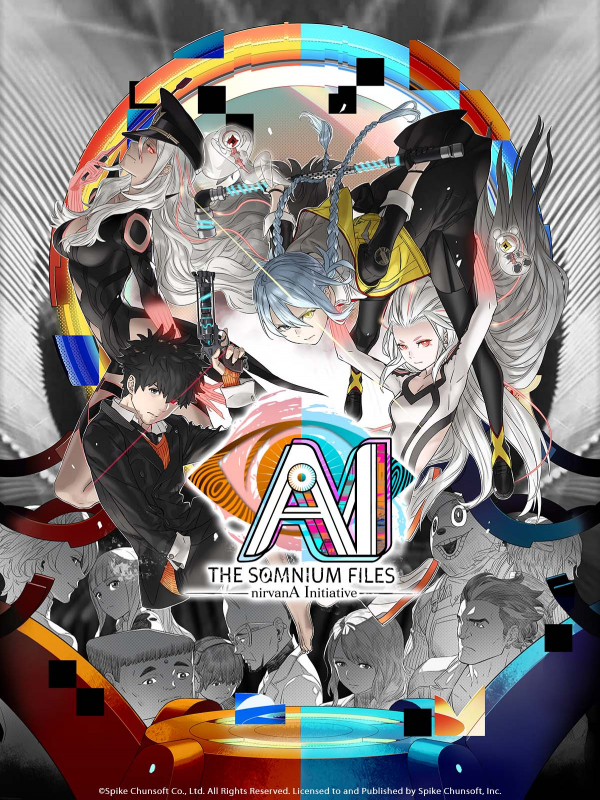

America - Front
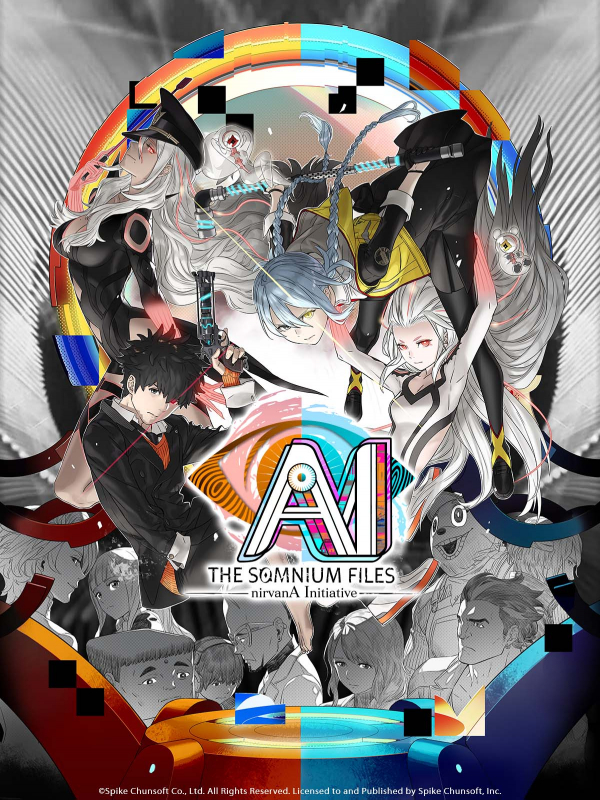

America - Back

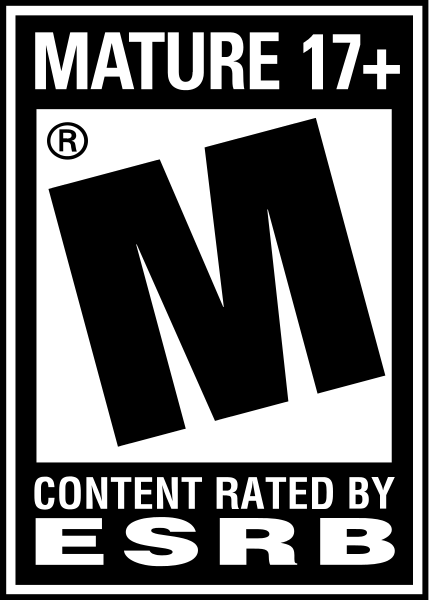

Spike Chunsoft
Adventure
 (Add Date)
(Add Date) (Add Date)
(Add Date) (Add Date)
(Add Date)
| Owners: | 0 |
| Favorite: | 0 |
| Tracked: | 0 |
| Wishlist: | 0 |
| Now Playing: | 0 |
‘Perfect murder, sir? Oh, I’m sorry. There’s no such thing as a perfect murder. That’s just an illusion’
Participants and viewers of a live-streamed quiz show are shocked when, after a short blackout, the right-half of a corpse suddenly appears centre-stage, before moments later bursting into flames. This is the first victim in the ‘Half Body’ serial killings. The location of the left-half remains a mystery, until six years later it's discovered in the middle of a stadium football pitch, with no sign of decay, as if the killing only happened yesterday. ABIS special agents Mizuki and Ryuki, with a little help from their AI partners Aiba and Tama, are tasked with solving the bizarre murders, which leads them ominously towards a mysterious plot known only as the Nirvana Initiative.
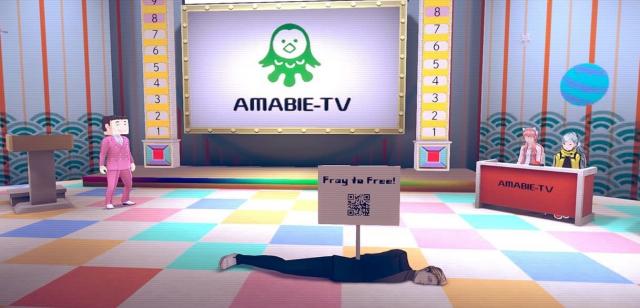
Those familiar with Kotaro Uchikoshi — director and writer of The Nonary Games series — will be all too aware that the ‘truth’ is often an illusion which, for obvious reasons, the murder mystery visual novel/adventure style genre fits like a glove. A direct sequel to 2019’s AI: THE SOMNIUM FILES, AI: THE SOMNIUM FILES - nirvanA Initiative is set three months after the conclusion of the first game. Fret not if you haven’t played the former, the latter can still be enjoyed by the unacquainted due to a rather clever opening that also determines if you have any knowledge of the ‘New Cyclops Serial Killings’. Potential spoilers (including dialogue or visual cues) are omitted, and what is removed is irrelevant to the new story, so essentially you only lose a little backstory information for returning characters.
The narrative, given Uchikoshi’s love of alternate timeline branching, is progressed via a flowchart. After a brief foray with Mizuki in the ‘present’ (a near future Tokyo), we settle into the investigation by following Ryuki’s tribulations six years in the past, before heading back to Mizuki in the ‘present’. Gameplay consists of: single pan-screen investigation, where you can interact on an information basis with certain surroundings, or people, from a fixed position; VR re-enactment of a crime-scene, where you can physically move around using AI tools such as a thermo-scan to uncover unseen clues or work out solutions to a puzzle; quick-time events, usually during some form of a scuffle; and Somnia, where the protagonists interact with the subject's dreams and memories via a manifestation of their AI ball through a ‘Pysnc Machine’, in an attempt to uncover hidden secrets and information deep within their psyche.
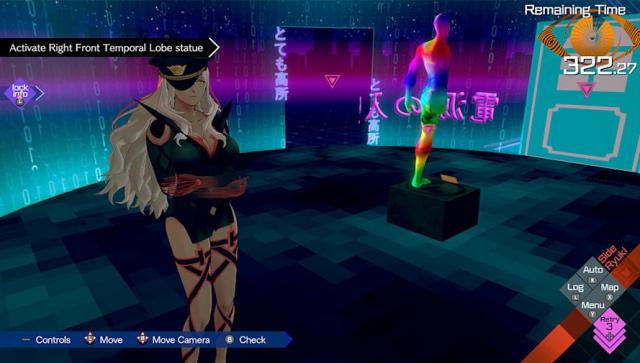
It's in these Somnia where AI really shines from a gameplay perspective. Given that each setting is a unique dream world where Aiba or Tama have to unlock mental blocks (which often take the form of puzzles) in sandbox free-roam areas in order to progress, every Somnium has the feel of a surreal escape room. One might find themselves partaking in a quiz show; hiding from a mad scientist; or my particular favourite, catching ‘Kusemon’ in Kusemon Go, in order to form a team of three that can (in turn-based battle) beat a ninja, and the mansion leader, who also happens to have an excellent second phase! There's a lot of variety throughout the many Somnia - they bring a consistent fresh touch to the whole experience, enabling a nice pace which never drags throughout the 30-odd hours of runtime.
Somnia have a time-limit of six minutes, where every interaction and player movement runs down the clock, though interacting elements often bestows a TIMIE, which when selected can significantly reduce action time penalties. It can often be imperative to plan your movement, actions, and TIMIE use like a jigsaw puzzle. The puzzles themselves are very much worth a mention, throughout the Somnia and in other game elements. Sure, some consist of the Uncharted type puzzles, where you just need to align an object correctly, however others are real headscratchers and require some proper codebreaking. It is, though, mildly frustrating when one really stumps you, and therefore blocks progress until you come up with the correct answer. While it's possible to bludgeon your way through Somnia until time runs out, before retrying a few times with the knowledge of what works, it's far more satisfying (and effective) to work out what actions are required, with mental keys also presenting themselves to assist you with information as to what your move should be.
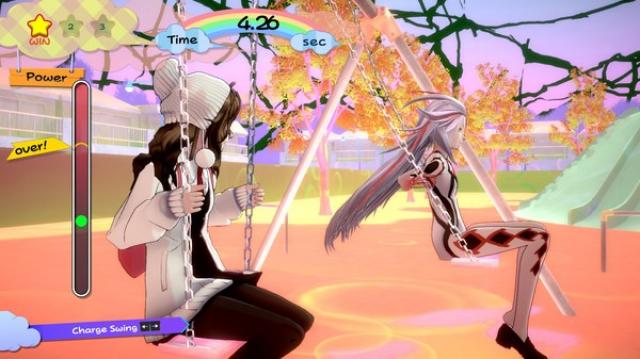
Narratively, Somnia can offer divergent flowchart paths, not always canon to the main narrative, but an alternate timeline for certain characters, which leaves the case unsolved but divulges important information needed to progress in the canon timelines. These are often where Uchikoshi delves deeper into the minor protagonists, which allows time to explore a story element that can often be heart-warming or heart-wrenching. Here, in particular, the relationship between the estranged Shoma and his father Andes Komeji— a character I initially found a little out of place with his square-head design — is beautifully constructed, and something I enjoyed experiencing to its multiple conclusions. It should be said generally that the character designs and scenario writing are of a very high standard. Sure, it has its quirks — idol worshipping from men of a certain age, and the distracting quality that porn has on enemies will never not amuse me — but for me that is what brings AI to life.
Alongside well-written dialogue, the importance of voice acting to bring the game to life in this genre can’t be underestimated. All the actors do a great job in making the diverse group of major and minor characters believable, often pushing you to empathize with them, or maybe to despise them. If I were being hyper critical, while I still enjoyed the relationship - and it may be due to the latter being returning characters - then I'd say Ryuki and Tama’s dynamic is not as strong as Mizuki and Aiba’s, and as you play with Ryuki first for a good portion of the game, this did leave a slight imbalance in my enjoyment. I rather suspect this is however due to Mizuki’s personality and design being my absolute favourite in both games, and her interactions with Date and Ota always brought a laugh or a smile to my face.
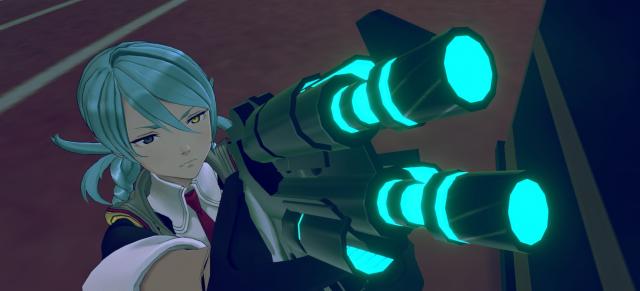
The tone and style of the game is suitably reflected in the eclectic OST, ranging from Japanese lo-fi hip-hop, to a toe-tapping full idol song composition — dance routine of course included. The single pan screen locations do a good job of bringing a near future Tokyo into existence, even though a good chunk of them will be familiar if you’ve played the first game. AI isn’t the flashiest game to look at graphically, but it’s full of charm and small details that belie any need for high fidelity storytelling; I was constantly immersed in the whole experience.
There are a number of iterations over AI - THE SOMNIUM FILES. VR re-enactments — which is my favourite addition — allow some nice detective work to take place outside of Somnia, and really complement the overall gameplay balance. There are also some nice quality of life improvements; TIMIES are much easier to use, and the flowchart is cleaned up with better indicators added, such as character picture cards next to where the Somnia are located. Any real criticism I have of the game is confined to my opinion that it’s just not narratively quite as good as the first game. We’re not talking a Westworld season one versus season two scenario, where in trying to pull the same trick again it falls flat, far from it. I still laughed plenty and got emotionally attached, it just doesn’t quite hit those, admittedly high, narrative heights that are indelibly linked to Date, Iris, and Mizuki.
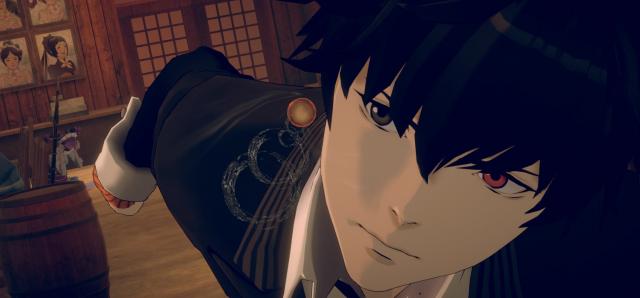
AI – THE SOMNIUM FILES: nirvanA Initiative is a really good game. Uchikoshi and genre fans will no doubt love it, and as someone who occasionally dabbles in the genre, I was on the cusp of loving it. Despite being a cleverly weaved and interlocking story, it just falls ever so slightly short at times in its overarching narrative compared to the first game, but in objective isolation it's still great. There's lots to love: the characters are great, especially Mizuki, and exist just that right side of quirkiness; the side narratives are impressive; the Somnia are great fun; and the gradual dripping of reveals and revelations has you deducting and reasoning where AI is heading, like a budding Sherlock, all the way through. Heartily recommended.









